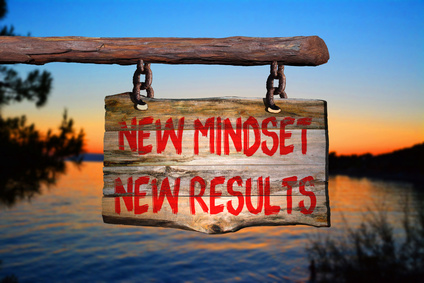Is Your Money Mindset Fixed on Growth?

- Acknowledge that money is energy. – We put a lot of weight on money because of its association with survival, safety and security. All of which are basic needs for us as human beings. But because of the connection to survival, we make money mean a lot. In reality, money is a neutral currency. It isn’t bad, it isn’t inherently good. It’s neutral. If we can accept this idea that money is just another form of energy, we have the ability to then use money to align with our values. This is where so many people are going wrong. They’re spending on autopilot and not consciously considering where they want to put their money. Neuroscience tells us that our conscious mind plays a very small role in how we run our lives. This means we are running our lives the majority of the time from our subconscious mind which is where we store beliefs and habits that we have preprogrammed. A practical way to make this distinction to using money consciously is to ask yourself the question, Is the way I spend and save my money currently aligned with my values?
- Identify the money beliefs from childhood. – What we learn about money up until age 7 is most impactful. What your parents did to earn money and how money was spoken about in the household can lead to shame associated with money (which can impact your spending and saving behavior.) For example, if you were told that the wealthy person in your community was “greedy” and therefore “bad” by your parents, then your subconscious mind would associate being wealthy with shame and an inability to be loved. One of my clients had a mindset belief that she was only able to make money if she worked really hard for it. This belief meant that she associated hard work, long hours and blood, sweat and tears with success. She had told herself this was the only way she was able to earn. In doing so, she was blocking off the flow of money in other ways. For example, clients that fell into her inbox through referrals asking to pay in full, or going into a launch and having clients come in without her having to push hard for the sale. When my client recognized this and actively started to tell herself, money comes easily to me, she was able to see all the ways she could create more money doing less, and has since streamlined her business model and added $100k in annual revenue.
- Move beyond your programming and create your own money blueprint. – Moving beyond your current money stories starts with awareness, which occurs in the prior step. Once you understand your conscious mind, you then have the ability to change these beliefs. The final step is to ask yourself a series of questions to cement the new beliefs and create new habits. These can include when I am financially secure, what do my days look like? One of my clients came to me after being in business for a number of years, and was generating money through many different offers in her business. She was tired, business felt hard and she had lost faith that she could build a profitable business. The problem was that she had created a story in her mind that the business model she most wanted wasn’t possible for her until she was earning at a certain level. By shifting that mindset, she then recognized the physical changes required within her business model, and is now up 300% in revenue for 2021, working less than she ever has in her life.
- When I am financially secure, where do I invest my money? – Personally, this question highlighted to me that I was living my life with the belief that I couldn’t invest or create opportunities to grow my money until I earned a certain amount. It showed me that I was telling myself a story that only wealthy people are prioritizing ongoing investing, which is counterintuitive. What habits can I incorporate into my day to understand my money and how it’s working for me more effectively? For many of my clients, they avoid their money because they don’t understand it. Having a growth money mindset means prioritizing learning, and being open to learning about money. That might look like checking your cash position every morning, or setting a bi-weekly date with your partner to discuss your household financial position. By understanding your money mindset blocks, you’ll be far more open to create habits you actually stick to. It’s more important than ever that we open a conversation about our relationship with money. By aligning the way we use money to our values, and getting clear on our subconscious programming from childhood about money, we can create new behaviors and open ourselves up to creating more wealth. If you take the time to understand your resistance to money, you’ll be much more likely to create healthier habits and practical strategies that you practice consistently.
With your new mindset, you’ll be well placed to seek out the advice and counsel of an accountant or financial advisor who has the expertise to help you level up your finances and start building wealth.
Strength and courage,
Wade

